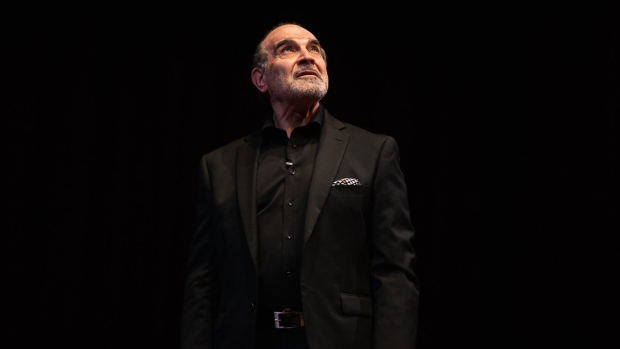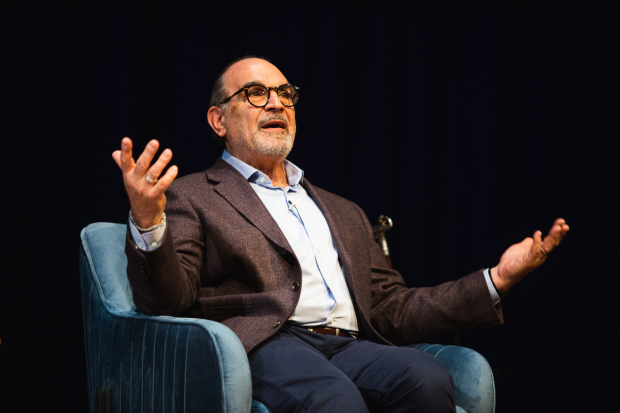Poirot and More, A Retrospective review – Suchet's show of reminiscence arrives in the West End

© Ash Koek
At the age of 75, David Suchet holds an interesting place in the public imagination. A fine classical actor, who has memorably played Shylock in Shakespeare and Salieri in Shaffer's Amadeus, he's never quite attained the heights of the great theatrical knights whose number he joined in 2020. Yet his portrayal of Agatha Christie's Poirot, remarkable for both its detail and its dignity, has made him loved and admired around the world.
A staggering billion people have watched the 70 films he made over 25 years, which are playing at every moment of every day somewhere on the planet. That alone gives him the right to mount a retrospective evening, which reaches London after an extensive British tour.
It's a benign affair, slightly peculiar in the way it is constructed (mainly) as a conversation with an old friend Geoffrey Wansell, who in bow tie and velvet jacket looks rather grander than the casually dressed star. He acts as a prompt for the anecdotes, then sits looking slightly disengaged, which I found distracting; I was also bothered by a pile of metal that sits on the side of the simple set, which mainly consists of two armchairs and a big screen on which photographs occasionally pop up.
This was unfair, because Suchet himself is an engaging and vivid raconteur, and once he hits his stride, he commands attention. The stories themselves are impossibly gentle, and often against himself. He talks a lot about his family, his distant surgeon father, his mother who would cough from the stalls to let him know she was there, and his grandma Elsie, a specialist in the sand dance in the old vaudeville days.
He remembers his RSC debut in 1973 which began with tripping over as Tybalt and went on to 13 years of unbroken success; he recalls meeting his wife Sheila Ferris when she swept down a staircase at the Belgrade Theatre, Coventry, and falling in love at first sight. They lived on a narrow boat together, touring regional theatres, which sounds both idyllic and out-of-time. Yet unlike Ian McKellen in his own one man show of reminiscence, Suchet isn't concerned to conjure the old world of repertory theatre. He just tells his stories about people he likes and admires and moves on.

© Ash Koek
In the second half, he takes a long digression into the way he approaches Shakespeare, using what John Barton called a "highway code" of language to navigate the writer's intentions. I'm fascinated by acting technique, so I rather liked it, but it alters the pace and tone of proceedings. What's really thrilling is when Suchet himself performs the speeches from the plays that he is best known for. Even in excerpt, you see what a fantastic actor he is: he brings such power and clarity to proceedings that I longed for more.
Through it all, there is Poirot, whose story is told from Suchet's first meetings with the Agatha Christie estate (who liked his performance in Blott in the Landscape) to encounters with the public who believe he is real, to his eventual screen death. Suchet shares the list of 93 qualities that he wrote to ensure he never played him as a buffoon, the famous moustache (gasps of delight) and the fabled cane.
More revealingly, he tells us that the mincing walk was an adaptation of one he saw Olivier give to a Restoration fop and perfected using the same method of a penny clenched between the buttocks. Finally, he reveals how he created Poirot's accent and his voice. It's anodyne stuff, but beautifully done and fascinating for all Poirot fans (amongst whom I include myself). You don't watch Poirot for its sharp realism, but for its qualities of comfort and eventual kindness. Suchet's show has remarkably similar qualities. It's like slipping into a warm bath of reassurance and none the worse for that.










